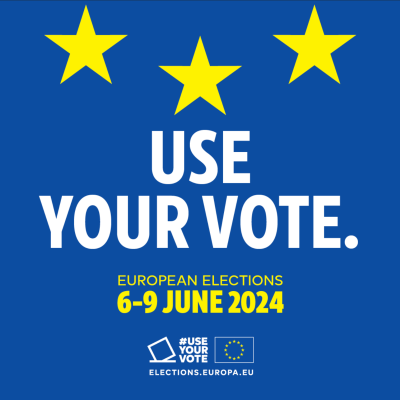By IETM *
The European parties have recently published their election manifestos. There is a notable increase in attention given to culture in their campaigns, compared to previous years. In the manifestos for the 2024 elections, culture, arts, and creativity are spotlighted in diverse ways, with references to creative industries, shared identities, cultural diversity, artistic freedom, and more.
The European People’s Party (EPP) places particular attention on cultural heritage, which, according to the party, the European integration process is based on. EPP aims to create a Digital Museum of European Culture which would digitally connect the most important museums and to establish a European Cultural Heritage Fund. They view culture as essential to the 'European way of life' and perceive cultural heritage as a potential driver for tourism. Read the EPP manifesto here.
The European Green Party stands out for recognising culture's role in envisioning solutions and driving transformation, beyond mere instrumentalisation of culture for preserving or building identities. They prioritise experimentation, artistic freedom, and advocate for integrating culture into their Green and Social Deal. They also emphasise significance in promoting culture’s contribution to mental health ‘healing strategies’. For the European Green Party, it is not only cultural heritage but also ‘our diverse and vibrant arts scene’ that are the backbones of European unity. Read the manifesto here.
The document of the European Conservatives and Reformists (ECR) - the Benedictine Vision: A Charter for Conservative Values - discusses values extensively but does not propose specific plans for cultural policies. They express concerns about a 'globalist agenda' and promote a 'variety of perspectives'. When it comes to cultural and historical identities, ECR emphasises the uniqueness of Member States themselves and stresses the importance of guaranteeing their national sovereignty. Read ECR’s vision here.

The European Democratic Party addresses the intersection of culture and AI and promotes the concept of 'cultural wealth', emphasising how artistic initiatives can contribute to overall prosperity. They are also the only party referring to ‘creative economy’. Read their manifesto here.
The European Left advocates for a feminist perspective to be integrated into EU policies, including in the cultural sphere. They also state that ‘the creative capacities of the working classes are the key to tackling the ecological and social crisis’. Read the manifesto here.
The Party of European Socialists does not have an extensive chapter on culture, but refer to the right to culture as a fundamental condition of democracy. For them, the concept of Europe’s cultural diversity includes cities, rural areas and remote regions. Read the manifest here.
A significant development from previous manifestos is the emphasis on artists' working conditions, a topic addressed in multiple manifestos including the 'European Artist Status' by the European Green Party, the 'basic European Statute for Intermittent Artists' by the European Left, and the 'Statute for Artists' by the European Democratic Party.
The preservation of Europe's cultural diversity and richness emerges as a common priority across the political spectrum, closely linked with notions of heritage, identity, and values. Access to culture is also underscored, with some parties advocating for cultural rights, particularly for linguistic minorities, children, and the elderly.
Proposals for increased funding are put forward by the European Left and the European Democratic Party, with each suggesting an allocation of 2% of the EU’s GDP.
You can read more about European parties and their 2024 campaigns here.
--
Author: IETM
Courtesy of IETM – International Network for Contemporary Performing Arts, the article was first published: here,









